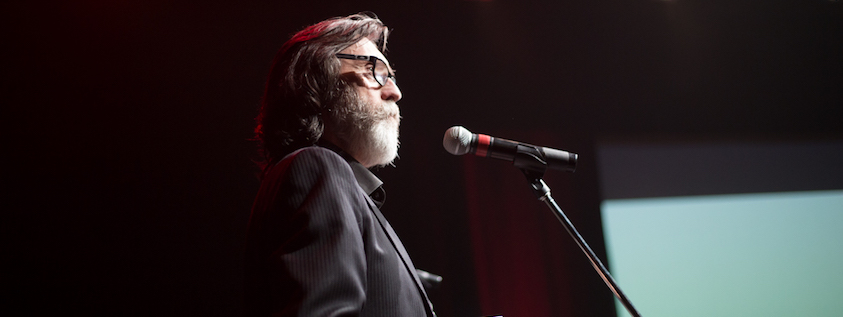Director’s Message – March 2018
Photo by Kinga Michalska
Should Télé-Québec produce and broadcast stories about Quebec’s English-speaking citizens? That is the question we asked ourselves as the licence for Quebec’s educational TV came up for renewal at the CRTC (Canadian Radio-television and Telecommunications). Télé-Québec’s mandate includes ‘promoting Quebec’s artistic and cultural life,’ and ‘reflecting regional realities and the diversity of Québec society.’ ELAN asked Marie Collin, CEO of Télé-Québec, if Anglos are part of that diversity. She replied that TQ recognizes its responsibility to reflect the complete diversity of Québec society, and that it already takes positive action to do so. For example, many English-speaking artists are guests on the popular variety program Belle et Bum.
A few years ago, ELAN approached Vidéotron about their community channel MAtv. We asked why they were not producing any programs in English, although 20% of their subscribers are English-speaking. Rather than respond dismissively or with hostility, MAtv managers thought it made perfect sense for a community TV channel to tell the stories of its entire community. When 20% of MAtv’s programming actually switched over to English, we were concerned that there could be a backlash. No one protested, and many Francophone viewers are now watching programs produced by their English-speaking neighbours, who have also discovered MAtv and are watching programs in French.
We are a long way from 1968 when Télé-Québec (originally Radio-Québec) was created in a society bitterly divided along linguistic lines. In 2018, most cultural agencies have developed policies on inclusion to eradicate old solitudes. One of the strongest symbols of this changing environment was the recent creation of an Anglo Secretariat by the government of Quebec. Its first public meeting in mid-February was an occasion to discuss many important problems facing English-speakers in Quebec and to propose solutions. The new Secretariat will not fix everything, but it does open up a welcome dialogue so that real problems can be discussed with people who have the power to effect change. Minister Kathleen Weil and MNA David Birnbaum both participated in the Secretariat meeting. They both offered assurances that Quebec values the work of English-speaking artists, and that the government will ensure this is reflected in tangible ways, such as the Action Plan for Quebec’s new Cultural Policy. It was in this spirit, that ELAN submitted a CRTC intervention requesting that Télé-Québec emulate MAtv.
Journalist Vincent Brousseau-Pouliot was intrigued by ELAN’s desire to see stories about English-speaking communities broadcast on Télé-Quebec and wrote an article in La Presse. Brendan Kelly, from CBC radio and columnist of the Montreal Gazette, was incredulous that ELAN could seriously expect Télé-Québec to agree. When La Presse posted its article on Facebook, social media quickly exploded. Parti Québécois culture critic Pascal Bérubé rose up in the National Assembly to accuse ELAN of ‘pressuring the CRTC’ to allocate funding for English-language productions, and he demanded that Marie Montpetit, Minister of Culture, ‘shut the door’ on ELAN’s demands. Mme Montpetit replied that ‘Télé-Québec will continue to promote Quebec culture and represent its diversity,’ which did not slam the door to M. Bérubé’s satisfaction. So he and his colleagues in the Parti-Québécois tabled a motion in the National Assembly demanding a guarantee that 100% of Télé-Québec’s content be produced in French. By the time Bérubé and the Gazette’s Don McPherson started trading Twitter barbs, as reported in le Journal de Montréal, it was a reminder that 1968 is not as distant in the rear-view mirror as we like to think.
Now that the reflex reactions to language issues have run their course, maybe we can get back to the main point ELAN’s was trying to make. How does Télé-Québec represent – and include – diversity? Bérubé and others are quite right that the world is inundated with English language production, which is a threat to French Quebec. It is also a serious challenge for Quebec’s English-language producers. We are not on opposite sides of this issue. None of that foreign production reflects our local realities. It does not tell our stories. That is the role of Quebec’s educational TV channel, and Télé-Québec is mandated to reflect the diversity of Québec society. We are not on opposite sides of this issue either. The only question is how it will be done.
Guy Rodgers
Executive Director




